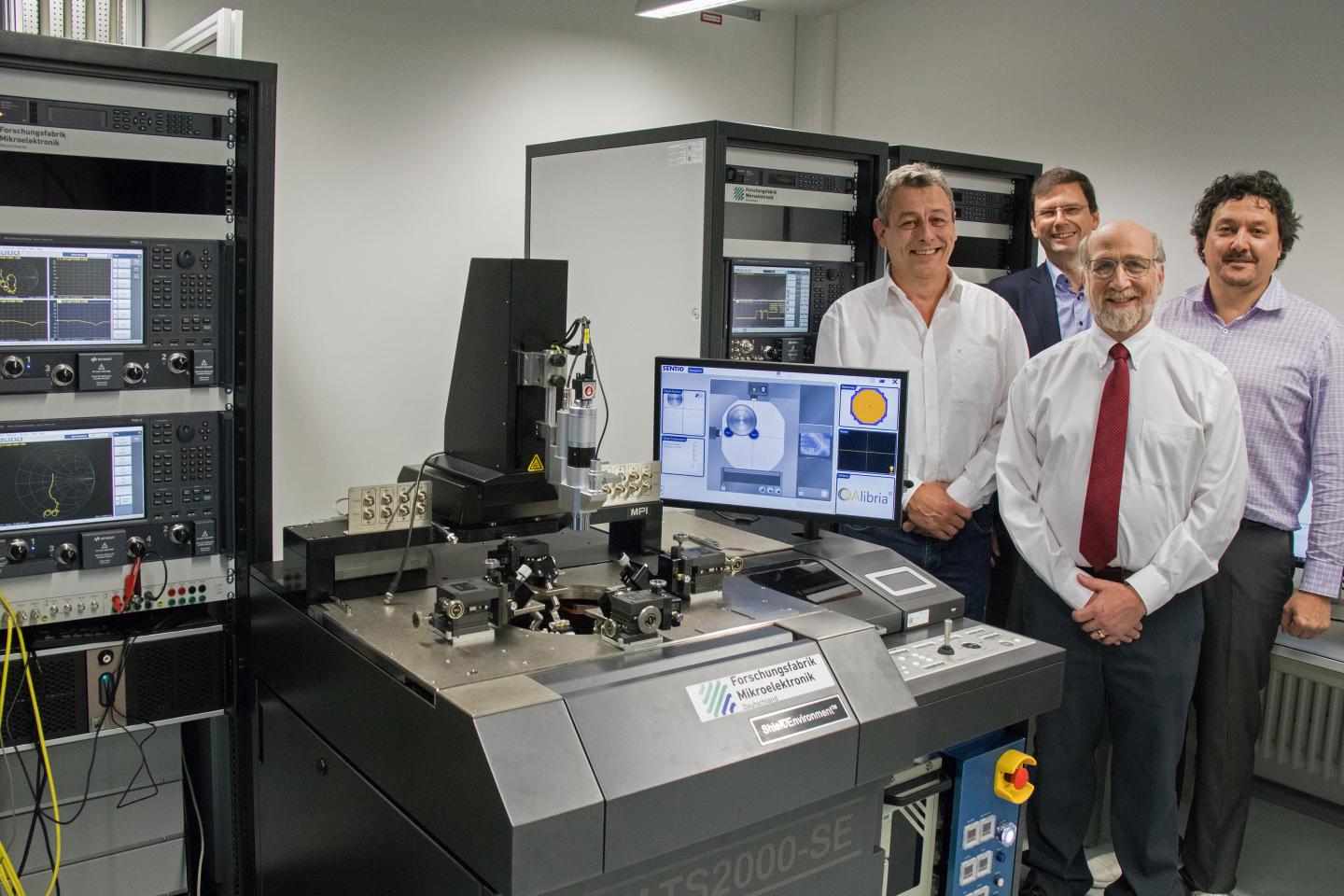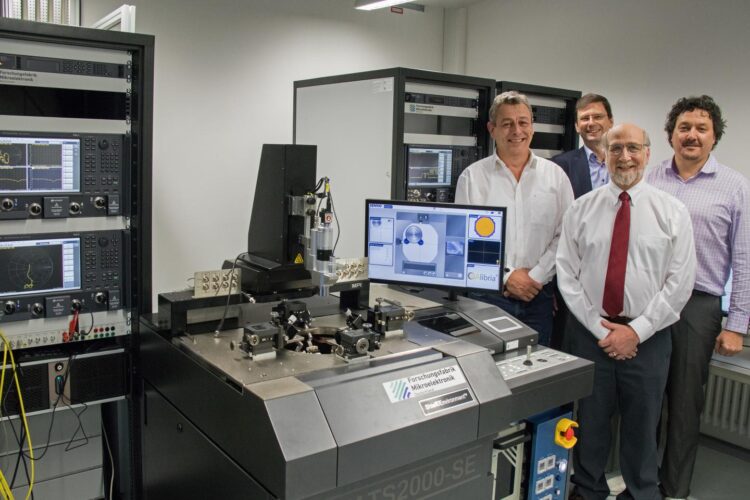
Credit: FBH/P. Immerz
With the delivery of Keysight Technologies’ custom-designed wideband microwave downconverters, all key components for the novel 5G-MIMO system are now in place at Ferdinand-Braun-Institut. The system was funded within Research Fab Microelectronics Germany and will enable unique measurements and research.
The 5G-MIMO measurement system for characterization of multiple input multiple output (MIMO) hardware for the 5th generation of telecom (5G) and space applications is in place at Berlin-based Ferdinand-Braun-Institut (FBH). With the installation of the wideband downcon-verters, an important milestone has been reached setting up this unique measuring system. Its large instantaneous bandwidth, vast number of ports, and vector calibration ability make it unparalleled in the world. This investment has been made possible through funding from the German Federal Ministry of Education and Research within Research Fab Microelectronics Germany (FMD).
Unprecedented measurement capabilities
The system will allow coherent characterization on 16 ports up to 67 GHz using signals with instantaneous bandwidths exceeding 2 GHz. It includes vector calibration of the interface to the device under test (DUT), which can be an integrated microwave amplifier on-wafer or a connectorized amplifier module. These features make the system outstanding for characterizing integrated multi-amplifier designs and the complex cross-modulation that arise in such components in modern beam-forming applications in telecommunication and space.
When the specifications were outlined and the planning started in the Microwave Measurement Group at FBH in 2017, no available hardware on the market could fully meet the ambitious requirements. Thus, the system was designed at FBH based on the most advanced available sub-components on the market. Several alternative methods for the wideband down conversion were evaluated in the development process. The bandwidth and required dynamic range of the system are particularly hard to achieve. In discussions with Keysight Technologies, the solution was found in custom-modified vector network analyzers based on their most advanced and well established PNA-X platform. The PNA-X units are equipped with modified wideband mixers and wideband intermediate frequency (IF) outputs. They are also prepared for common local-oscillator (LO) operation. “These major modifications were especially in-corporated to meet our requirements,” explains Dr. Olof Bengtsson, head of FBH’s RF Power Lab. “All of this would not have been possible without the great interest, knowledge and commitment of the Keysight team.” Combined with external third-party digitizers, the PNA-X receivers in the system allow coherent multiport analysis with instantaneous bandwidths in the 5 GHz range.
“Keysight is committed to developing advanced solutions for the microwave industry and recognized the challenge presented to us by Dr. Bengtsson as an opportunity to do just that,” said Dr. Joel Dunsmore, Keysight Fellow and technical lead on the project. “This opportunity allowed us to combine the unique performance of our custom GaAs mm-wave converters with an innovative approach to meet the time schedule in a new hardware option in our PNA-X family of instruments. Clearly, industry leading cooperation, such as this, will benefit the entire microwave community.”
FBH will now focus on integrating the system and make it fully operable to meet the expected system performance. More and more complex MIMO measurements will be possible; and in 2020 an over-the-air (OTA) measurement capability for 3D integrated antennas will be added.
This system will be the cornerstone and primary workhorse for MMIC amplifier characterization and MIMO evaluation at FBH for many years to come. It will also enable further research on wideband measurements techniques. The 5G-MIMO measurement system will not only open up unique measurement possibilities for the FBH and its customers, but also for the partner institutes that joined forces within Research Fab Microelectronics Germany (FMD). “This system represents exactly what FMD is all about, ensuring that microelectronic research in Germany has access to state-of-the-art equipment”, explains Dr. Andreas Grimm, Technology Park Manager at FMD. “Equipment like this is fundamental to be able to play a role in the development of the future challenging applications, thus supporting the German and European microelectronic industry to stay competitive.”
###
Media Contact
Petra Immerz
[email protected]
Original Source
https:/





